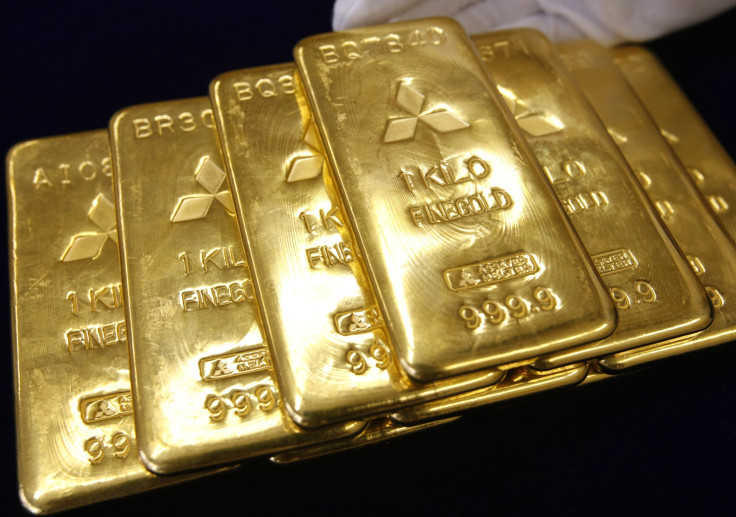Big Banks Under Investigation For Allegedly Fixing Precious Metals Prices: Wall Street Journal

It’s called the London gold fix: the widely followed daily process by which a handful of financial giants set prices of precious metals for global markets. Now, some of the biggest banks in the world have come under scrutiny for allegedly tainting the process.
Price-rigging probes from the U.S. Commodity Futures Trading Commission (CFTC) and U.S. Department of Justice (DOJ) are underway at as many as 10 banks, the Wall Street Journal reported late Monday, citing individuals close to the proceedings. The DOJ is looking into antitrust violations while CFTC has reportedly opened a civil investigation.
The troubled U.K.-based bank HSBC hinted at the investigation in its regulatory filings Monday. The other banks reportedly under investigation – Bank of Nova Scotia, Barclays, Credit Suisse, Deutsche Bank, Goldman Sachs, JPMorgan Chase, Société Générale, Standard Bank and UBS – have not commented.
Benchmark prices for gold, silver, platinum and palladium, the world's four main precious metals, that are reportedly under scrutiny affect everything from retail jewelry prices to the returns of exchange-traded funds that millions of pensioners depend upon. Twice daily, five banks set the gold rates over a conference call. The metals price-setting process has been updated since the time of the alleged violations, and only four banks now participate; Deutsche Bank dropped out.
The newly reported probes about precious metals prices come on the heels of several high-profile cases in which banks were accused of manipulating other global benchmarks. In 2012, several banks were implicated in a scandal involving bank-to-bank interest rates that underpin at least $350 trillion in global financial transactions. That scandal involved the London Interbank Offered Rate, also known as Libor.
In another case last year, four of the banks allegedly caught up in the current gold fixing imbroglio paid billions in fines after accusations of rate-rigging in the foreign exchange market. Traders from the firms allegedly colluded to manipulate currency prices during a 60-second rate-setting window.
Authorities and experts have long worried the process for fixing the price of gold was vulnerable to tampering, but suspicions peaked after the Libor scandal broke. A German financial regulator reportedly found no evidence of wrongdoing, while Swiss authorities last year fined UBS for “serious misconduct” at the bank’s metals trading desk.
One concern is that information “trickles down” from the banks involved in setting metals prices to the banks' subsidiaries and customers, giving participants an unfair insider advantage over the rest of the market.
That worry helped spur more than two dozen lawsuits targeting banks involved in the gold price-fixing process. The plaintiffs, ranging from private gold dealers to hedge funds to investor-activists, consolidated their actions into a single class-action lawsuit last year.
The London gold fix investigation will likely be followed by investigations into similar benchmark rates. The Journal reports that an interest-rate benchmark called ISDAfix has also come under regulatory scrutiny.
© Copyright IBTimes 2024. All rights reserved.











